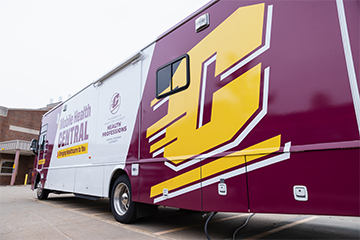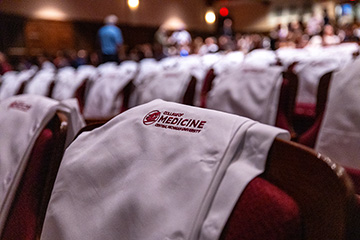CMU Outreach Expands in Northern Michigan and Rural Communities
In a strategic move to enhance its outreach efforts, Central Michigan University (CMU) is expanding its presence in Northern Michigan and rural communities. CMU President Robert Davies emphasized the university's commitment to actively participating in and contributing to the Northern Michigan community, showing a strong commitment to local engagement and collaboration.
"CMU takes seriously its outreach role to support and serve local and regional educational priorities," said President Davies. "Many staff, faculty, and students live, learn, recreate, and reside in northern Michigan. We know that the best solutions and optimal quality of living come from building alliances so every person in the community can attain their full potential."
The expansion will be anchored by CMU's Innovation & Online programs and the CMU Rural Health Equity Institute. The outreach hub will be situated at Traverse Connect in Downtown Traverse City, serving as a focal point for innovation and collaboration in rural, Mid-Central, and Northern Michigan. Central Michigan University, Innovation, and Online, and the CMU College of Medicine (CMED) are recognized for building collaborations, developing innovative learning solutions for improving education, providing access to high-quality health care, and forging strategic partnerships to build thriving communities and better lives for all people in Michigan.
The CMU Rural Health Equity Institute, launched in July 2023, plays a pivotal role in addressing the unique aspects of well-being and rural health in Central and Northern Michigan. The institute collaborates closely with communities to respond to local needs, tackling rural health disparities through initiatives to improve access to services, expand telehealth capacity, advance data solutions and tools, and deliver education and training.
This expansion reinforces the commitment of the CMU College of Medicine to train physicians capable of providing comprehensive health care to underserved populations in Michigan and beyond. By establishing a CMU anchor within Northern Michigan, the university aims to optimize its engagement with rural communities, fostering better healthcare outcomes.
In a notable development, Alison Arnold, Ed.D, the Executive Director of the CMU Rural Health Equity Institute, was recently appointed by Governor Whitmer to the Michigan Health Information Technology (HIT) Commission. Together with other Commission members, Arnold will identify critical technical, scientific, economic, and other issues affecting the adoption of health information technology. Their collective efforts aim to increase public understanding of health information technology and promote more efficient communication among multiple healthcare providers.
CMU Innovation and Online has been a strong partner in the region for many years, serving students in Traverse City and the Grand Traverse Region since 1979. We moved to our current location at the Northwestern Michigan College (NMC) University Center in fall of 1995 and delivered face-to-face courses until student demand propelled a shift to hybrid and fully online courses and programs.
CMU Innovation and Online remains an active member of NMC's University Center and is further enhancing the strong relationship between the two institutions.
Innovation and Online is a future-oriented, inclusive, and learner-centered unit with a focus on expanding educational access to learners at a wide range of entry points (dual enrollment, undergraduate, graduate, and professional education) through customized learning solutions and various modalities. This work embraces an entrepreneurial mindset to explore opportunities, experiment with delivery models, and co-create educational options to successfully meet the needs of learners.
CMU's expansion in Northern Michigan and rural communities signifies a proactive approach to addressing local needs and fostering collaborative results to enhance and accelerate the well-being of residents in these regions.



